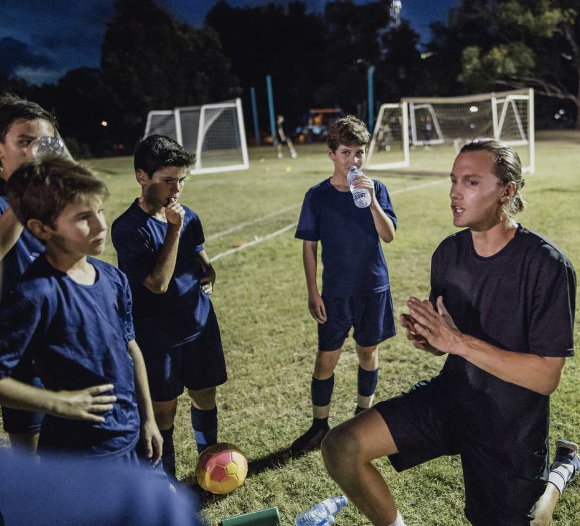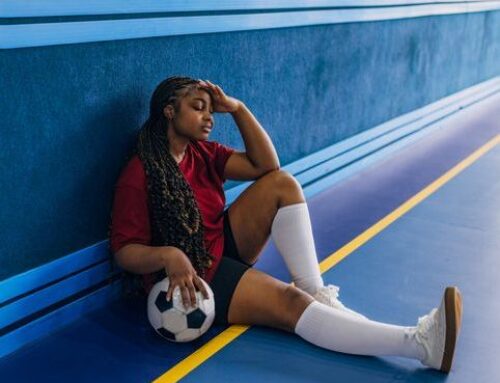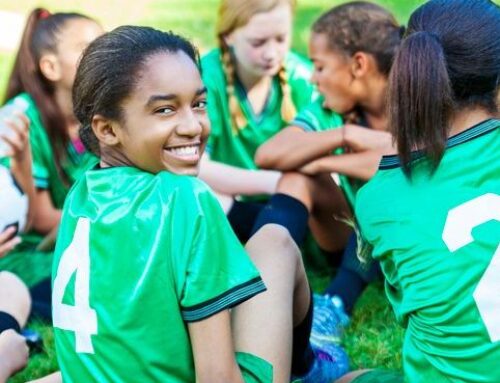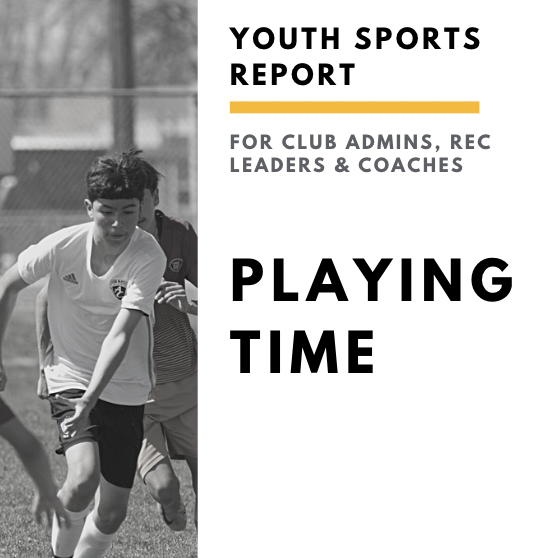Get our exclusive report. Download the iSport360 Club Switching Report Here – For Club Admins, Rec Leaders and Coaches.
How to Support Your Athletes Playing Through Mistakes
There were two minutes left and our team had the ball on our defensive side. It was stressful as a coach but likely more stressful to the very young player. She was playing in a big game. She passed the ball. The pass went right to the other team. They quickly created a counter attack and scored. At that point, the game was over and we were tied. Our team went on to lose in overtime. It was a bit heartbreaking but as a coach, we have all been in those situations more than once.
After the game, my first thought was “Well, I bet she will never make that mistake again.” It was a part of a story I had heard from Warren Buffett about an employee that made a huge mistake. He said, “Well, it cost us $500K to teach him that, I definitely don’t want to fire him after we spent all that money on teaching him.”

Youth sports can be a great way for children to learn valuable life skills such as teamwork, discipline, and perseverance. However, like any other activity, it comes with its fair share of challenges. One such challenge is making mistakes. Mistakes are an inevitable part of any sport, but they can be especially challenging for young athletes who are still learning the game.
In this blog post, we will explore the importance of making mistakes in youth sports and how coaches, parents, and players can use them as opportunities for growth and learning.
Learning From Mistakes
First and foremost, it is essential to understand that making mistakes is a natural and necessary part of the learning process. No athlete is perfect, and everyone makes mistakes, even the best players in the world. Mistakes provide valuable feedback that can be used to improve performance and develop new skills. Athletes who are afraid to make mistakes or are overly critical of themselves when they do make mistakes are less likely to take risks and try new things on the field or court.
This article is provided by iSport360, a youth sports software company that helps young athletes and their team improve communication, organization, and player development.
Learn how to make every youth sports season a success for players, coaches, and parents.
Role of Coaches and Parents
Coaches and parents play a critical role in how young athletes perceive and respond to mistakes. It is important to create a safe and supportive environment where mistakes are seen as opportunities for growth rather than as failures. Coaches should encourage players to take risks and try new things while also providing constructive feedback to help them improve. Parents should also be supportive and avoid being overly critical or negative when their child makes a mistake.
Having A Growth Mindset Helps
When mistakes do happen, it is essential to approach them with a growth mindset. A growth mindset is the belief that abilities and skills can be developed through hard work and dedication. Athletes with a growth mindset view mistakes as opportunities to learn and grow, rather than as a reflection of their abilities. They are more likely to bounce back from mistakes, learn from them, and use them as motivation to improve.
In contrast, athletes with a fixed mindset believe that their abilities are set in stone and that they cannot change. They may view mistakes as a sign of weakness or failure and become discouraged or give up altogether. As a coach or parent, it is important to help young athletes develop a growth mindset by emphasizing the importance of hard work and dedication and rewarding effort rather than just results.
Playing Through Mistakes
Finally, it is essential to recognize that mistakes are not just a part of the learning process, they are also a part of the game. As a coach, we want players to know that sports are a collective grouping of making mistakes. These are games of mistakes, athletes make them all the time. The focus should be not about the mistake but what do you do after the mistake. That matters the most. Just like in life, deal with it and move on.
Athletes who are afraid to make mistakes or who are overly critical of themselves are more likely to become anxious or stressed during games, which can negatively impact their performance. Coaches and parents can help young athletes by reminding them to stay focused on the present moment and not to dwell on past mistakes. They can also help by reinforcing positive self-talk and reminding athletes of their strengths and accomplishments.
Wrap Up
Making mistakes are an inevitable part of youth sports. However, mistakes can be valuable opportunities for growth and learning if approached with a growth mindset and a supportive environment. Coaches, parents, and players all play critical roles in how mistakes are perceived and addressed. By emphasizing the importance of hard work and dedication and rewarding effort rather than just results, young athletes can develop a growth mindset that will serve them well, not just in sports but in all areas of life.
Learn more or Book a Demo of our youth sports software that is helping teams improve communication, organization, and player development.
About the author:
Amy Masters is a sports mom, coach and club administrator. She has been coaching youth sports for more than 10 years. She started Jr Lions Field Hockey, the youth recreation program for the Hunterdon County community growing it from 40 players in year 1 to 150 players by year 3. A few years later, she saw the love and competitiveness grow then started Omega Field Hockey Club serving NJ and PA players. Prior to coaching, she was a collegiate field hockey player for Lock Haven University. In her spare time (lol), she is head of marketing for iSport360, where she brings her love of sports to a bigger audience.
Learn more or request a demo of our youth sports software that is helping teams improve communication, organization and player development.
April 22, 2023





